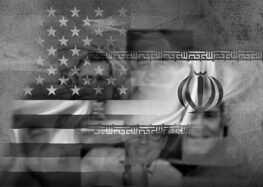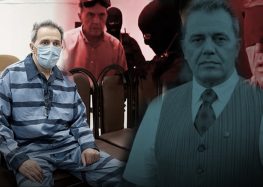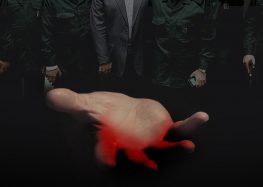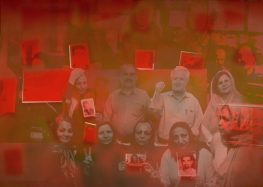Dual National Imprisoned in Iran, Kamran Ghaderi, Struggling to Access Medical Treatment for Untreated Tumor
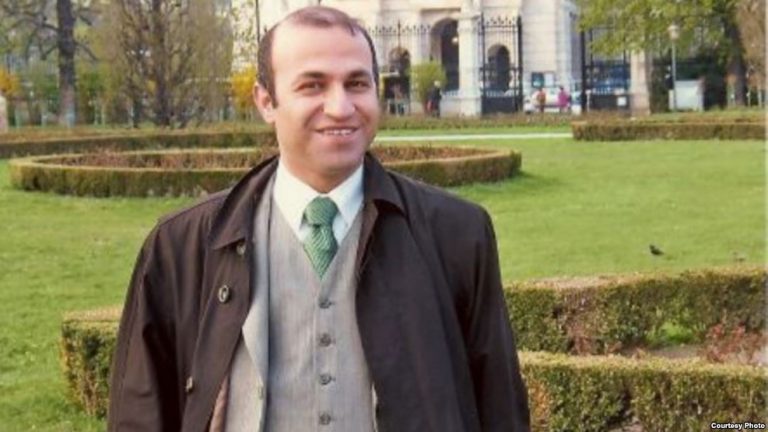
“He’s Just a Businessman Who Has Done Nothing Wrong”
Kamran Ghaderi, an Iranian-Austrian dual national imprisoned in Iran since January 2016, is the latest in a long line of prisoners who have been denied medical treatment. Ghaderi has received no treatment for a tumor in his leg, a source close to the Iranian-born Austrian citizen told the Center for Human Rights in Iran (CHRI).
The source, who asked not to be identified when they spoke to CHRI on December 19, 2018, said an MRI taken in September 2017 showed Ghaderi had a tumor in his left leg bone but since then nothing had been done to further diagnose or treat the “painful” tumor despite pleas by his family.
In addition, Ghaderi underwent an operation for disc pain in his back in February 2018 but did not receive any physical therapy after the procedure.
“He has had two operations in which doctors removed intervertebral discs and a 30cm-long plate was operated on his spinal column,” the source told CHRI. “Since then he can bend only 10 degrees.”
“Kamran was not immediately returned to prison. He [was] at home for a while. But he was then returned to prison without having the required physical therapy after surgery.”
“More importantly, he still has a tumor on his left leg bone and that’s extremely worrisome,” the source added.
Political prisoners in Iran, including elderly inmates, are singled out for harsh treatment, which often includes denial of medical care. The threat of withheld medical care has also been used as an intimidation tool against prisoners who have challenged the authorities or filed complaints.
Arrested by agents of Iran’s Intelligence Ministry in January 2016 while on a business trip to Tehran, Ghaderi, 55, is serving a 10-year prison sentence for allegedly “conducting espionage for enemy states.”
In January 2017, a source close to Ghaderi’s family told CHRI that Ghaderi’s “so-called confession” was issued under extreme “duress.”
“There is no evidence to show Kamran committed espionage,” said the source. “His lawyer said in court that Kamran signed the confession under duress and therefore it should not be admitted as reliable evidence.”
Iran’s security and intelligence agencies have a long history, documented by the UN and international rights organizations, of forcing false confessions that are then used to convict targeted individuals.
“Also, Kamran himself denied the accusations in court,” added the source. “It’s strange that the judge still sentenced him to 10 years in prison only on the basis of the so-called confession.”
“We don’t know if Kamran was arrested in connection with some political issues between Iran and Austria or if it’s purely a financial matter,” said the source. “But he’s just a businessman who has done nothing wrong, and Iranian judicial officials are well aware of that. If they are looking for spies, they should catch real ones.”
Ghaderi had previously traveled to Iran on many occasions for work and business seminars, including as a member of the Austrian delegation to Tehran led by then-President Heinz Fischer in October 2015.
In December 2018, his family united with five other relatives of dual and foreign nationals who have been imprisoned in Iran to issue an open letter calling on world leaders to finally put an end to Iran’s practice of imprisoning foreigners as political pawns.
“Over several agonizing years, our loved ones’ cases have each been treated individually, but while they are all unique and complicated cases, this is not an individual problem, it is a pattern; a pattern we call on world leaders to help end,” wrote the families in their letter.
“Responsible stakeholders on all sides of this issue know what to do. Please, secure our loved ones’ freedom from Iranian prisons,” they said.
At least 10 dual and foreign nationals as well as foreign permanent residents were imprisoned in Iran as of September 2018. In November 2017, Reuters reported that at least 30 dual nationals had been arrested since the signing of the Iranian nuclear deal in July 2015.

